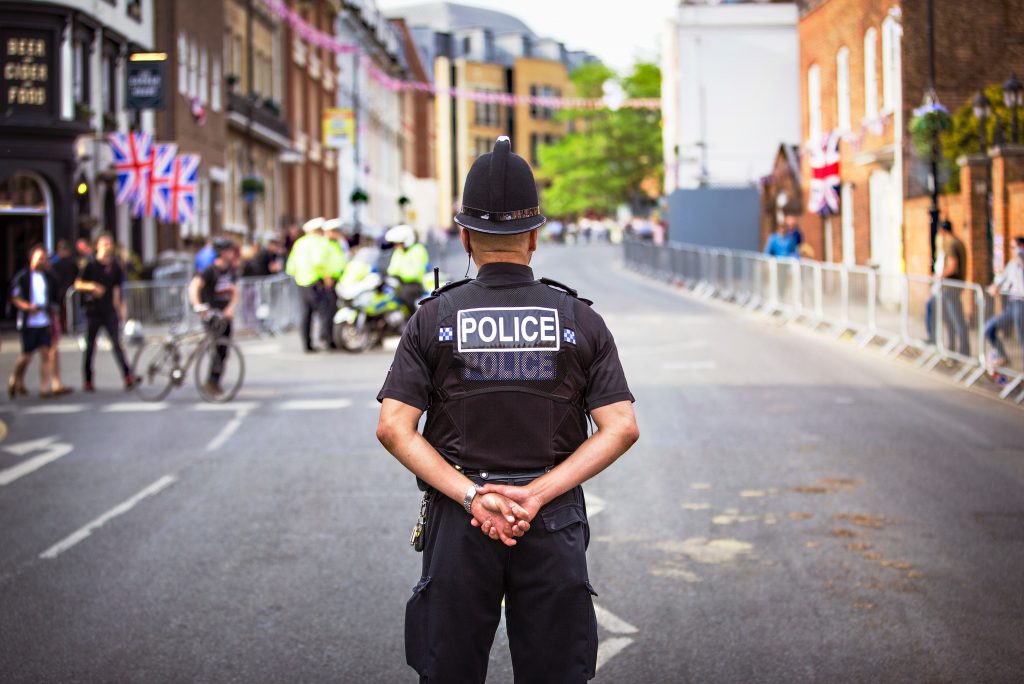Rape victims are having their privacy violated “unlawfully” by a new policy which gives police a “blank cheque” to download their phone data, a coalition of civil liberties groups warns.
Survivors are being deterred from seeking justice after being confronted with forms warning that police will need to download “almost all” their phone data, with reports of cases being dropped if they refuse.
The findings are contained in a report released on Tuesday (July 23) by privacy campaigners Big Brother Watch, based on UK police force data obtained under the Freedom of Information Act and interviews with victims.
They and nine other campaign groups are launching a challenge against the “Digital Processing Notices” – which were introduced across England and Wales in April this year as means of obtaining victim’s consent to download their data.
It ‘Makes Me Feel Like I’m Being Violated Once Again’

Image Credit: Claudia / Unsplash.
In one case, a victim known only as Olivia, was drugged and attacked by a group of strangers but her case was dropped by police when she refused to hand over seven years worth of phone data.
Although happy to provide information relevant to the incident, she said: “My phone documents many of the most personal moments in my life and the thought of strangers combing through it, to try to use it against me, makes me feel like I’m being violated once again”.
In another, police demanded a woman named Jane hand over her current mobile phone after she was raped by a stranger eight years ago – despite her insistence she did not know the suspect and had no contact with him.
The police warned her the Crown Prosecution Service might not charge the suspect if she did not comply, despite him being identified with DNA evidence.
A third case was of a woman whose phone calls to unknown numbers after she was raped were used against her to suggest it was consensual. It was implied that, capable of making telephone calls, she was not deeply affected by the incident. She insisted that the calls were to specialist support helplines.
‘No Victim Should Have To Make A Choice Between Privacy And Justice’

Image Credit: Pixabay.
Among those backing the call for police chiefs to revise their policy is Amnesty International, the Centre for Women’s Justice, End Violence Against Women, JUSTICE as well as Vera Baird QC, the Victims’ Commissioner for England and Wales.
The groups have three main requests:
- Victims’ consent to access their personal records should be freely given, specific and limited to the information relevant to the crime – not blanket. Victims of crime should never have to sign away their privacy rights in the pursuit of justice.
- The police’s digital evidence technology should be brought up to date so police can collect targeted pieces of evidence from smart phones, rather than entire digital copies.
- Police should not be using artificial intelligence to conduct fishing expeditions through victims’ phones.
After rights groups raised concerns, the Information Commissioner’s Office (ICO) launched a high-priority investigation into the issue which is ongoing.
Silkie Carlo, director of Big Brother Watch said: “The digital interrogation policy doesn’t allow victims to give police relevant pieces of evidence without feeling like their private lives will be put on trial.
“This disproportionate approach bears none of the basic qualities required by data protection or human rights law, and it’s staggering that the policy is yet to be revoked.
“Police chiefs must urgently retract the policy and devise a more competent, proportionate and lawful approach.”
Devices Only Examined When Data ‘Could Form A Reasonable Line of Inquiry’

Image Credit: Unsplash.
Assistant Commissioner Nick Ephgrave, National Police Chiefs’ Council Lead for criminal justice, insisted that digital devices are not examined “as a matter of course” but “only when data on a device could form a reasonable line of enquiry”.
He added: “In this digital age, reasonable lines of enquiry often include the examination of material stored on or accessed by digital devices.
“This can happen in any investigation but is most common in cases where victims and suspects know each other.
“We believe that the best way of meeting our obligations is asking for consent to search for particular, relevant material.
“The new form is intended to ensure this is done properly and consistently across the country.”
Ephgrave said that the police recognises “the concerns of some privacy and victims’ groups” and has been seeking advice from various groups to help improve the process.
He added: “We are strengthening training and investing in new technology, which will help to address concerns.
“We will look carefully at Big Brother Watch’s suggestions in their report released today, as well as the Information Commissioner’s investigation findings, which are expected soon.”







